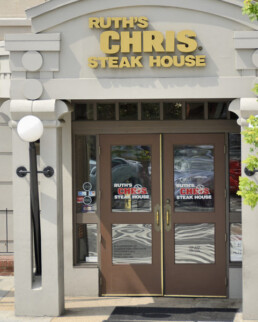California Appellate Court Upholds Employee's Calculation of Unpaid Wages
In a decision submitted for official publication on October 14, 2021, the Court of Appeal of the State of California Second Appellate District Division Four upheld a trial court’s decision to enter judgment in favor of a warehouse employee for wage violations claims filed in a lawsuit against his former employer. The trial court awarded the employee $99,394.16, of which $42,792.00 accounted for unpaid overtime wages. The case, Byron Jerry Morales v Factor Surfaces LLC et. al., reaffirms California Labor Code and principles of employment law when calculating an employee’s regular rate of pay.
Case Background
Byron Jerry Morales was a warehouse employee employed by Factor Surfaces LLC. The company hired Morales in 2016. Morales performed a variety of duties, vital to the financial success of the company. Morales cleaned and sanitized the warehouse; he accepted shipments of supplies and equipment; he facilitated and personally made deliveries and pick-up of workplace materials; and, he engaged in customer service relations.
In 2018, the employment relationship between Morales and Factor soured, when Factor terminated Morales’s employment, after Morales asked to be compensated for unpaid overtime wages.
In 2019, Morales filed a lawsuit against his former employer, alleging that the company retaliated against him; the company violated California law by failing to maintain and provide employee records and wage statements; the company failed to pay overtime wages, along with meal and rest break compensation; and, for wrongful termination.
The Trial
At trial, Factor Surfaces LLC and its agents Gregory and Bianca Factor, both testified that the company was unable to produce as evidence Morales’s employment records and wage statements as required by statute. The employment records and wage statements would have indicated, at minimum, Morales’s regular rate of pay along with the number of days and hours he worked.
However, the company claimed that the records went “missing” after a truck owned by the company was stolen from inside a gated community. Supposedly, Morales’s employment records were inside the truck, and although the stolen truck was later recovered, the records were not. The company also testified that Morales was not paid commissions for sales.
Morales, however, was able to provide evidence at trial of his regular rate of pay and wage history with his former employer. Prior to March 9, 2018, Morales worked a full-time schedule at his former employer: 8:00 a.m. to 6:00 p.m. Monday through Friday and 9:00 a.m. to 5:00 p.m. on Saturdays. After March 9, 2018, Morales stated that he worked two (2) or three (3) Saturdays per month. Morales estimated that prior to March 9, 2018, he earned eighteen (18) hours of overtime per week, and after March 9, 2018, he earned approximately fourteen (14) hours of overtime per week because he was not working every Saturday.
Morales testified and provided evidence in the lawsuit that his regular rate of pay in 2016 was $120.00/per day, and that he received a three percent (3%) commissions on sales, which at the end of 2017, was reduced to one and a half percent (1.5%). Without explanation, the company cut Morales’s commission on sales to zero (0%). Also, at some point during Morales’s term of employment the company increased his weekly wages to $150.00/per day.

The Trial Decision
The issues of the trial ultimately boiled down to two questions: (1) which side of the lawsuit, Morales or Factor Surfaces, was more credible or believable based on their testimonies and evidence presented at trial; and (2) whether the trial court should accept Morales’s calculation of his regular rate of pay which included unpaid overtime wages and commission sales?
The trial court’s answer to the first question: Morales. In this case, the employee was found to be more credible than the former employer. Morales established that he performed work for the company that was not properly compensated; and, he provided sufficient evidence to demonstrate the amount and extent of work he performed. The burden then shifted to Factor Surfaces to provide accurate and complete employee records and wage statements as required by California law, and the employer could not. The best defense the company could raise was the documents were stolen. With that, the trial court accepted Morales’s calculation of his regular rate of pay while employed by Factor Surfaces. In result, the company filed an appeal challenging the trial court’s acceptance of the employee’s calculation of regular rate of pay.
The Appeal
The Court of Appeal reminds us that – under California Labor Code Sec. 510(4) – overtime pay means “any work performed by an employee in one workday, and work performed in excess of forty (40) hours in any one work week, must be compensated at no less than one-half time times the employee’s regular rate of pay.” Generally, commission workers receive compensation for their commission sales based on a different formula under California law.
However, in this case, because the employee was found to be more credible than the former employer; and the employer failed to provide any records as evidence, the Court of Appeal agreed that the trial court’s acceptance of Morales’s calculation of his regular rate of pay which included unpaid overtime wages and weekly commission sales was proper.
What does this mean?
What this means for employees is that the Court of Appeal is signaling one way to protect job interests against the unfair labor practices of employers. Employees may be able to do this by keeping copies of their wage statements, records of time worked, and work performance. The Court reiterates “where the employer has failed to keep records required by statute, the consequences for such failure should fall on the employer, not the employee. In such a situation, imprecise evidence by the employee can provide a sufficient basis for damages.”
The Court is saying that, even if the employee is not able to provide precise records, if the employee can at least present credible or believable testimony and records of the employee’s wage history and hours worked, it may be sufficient to shift the burden to the employer to prove otherwise; and, if the employer cannot prove otherwise, then it may lead to recovery of commission sales, unpaid overtime wages, and damages in a lawsuit. $25,000.00 of Morales’s award was for emotional distress damages.
Employees should practice saving and cataloguing their pay stubs or weekly paychecks; track missed meal or rest break periods; track duties performed at work and hours worked; and, track the number of wages earned from commission sales. This information could prove to be vital in a lawsuit for damages.
Each case will depend on the specific facts, so it is important to consult with an experienced labor law attorney to assess the specifics of your case to determine if you are owed additional compensation and unpaid overtime wages from your employer.
Free Consultation
Srourian Law Firm, with locations in Los Angeles, Westwood, Woodland Hills, and Orange County is experienced in all aspects of employment law including wage, labor, meal and rest break violations in the workplace, and have aggressively represented employees in Los Angeles, Hollywood, Santa Monica, Orange, Irvine, Anaheim, Santa Ana, Newport Beach, Costa Mesa, Fullerton, Tustin, Mission Viejo, San Clemente, Garden Grove, Laguna Niguel, Brea, Fountain Valley, Aliso Viejo, Yorba Linda, Westminster, Laguna Hills, Cypress, and La Habra.
If you or someone you know suffered employment violations, you may have certain employee rights under state and federal law, and may be entitled to compensation as a part of a class action lawsuit. Please contact us to speak with one of our lawyers for a free consultation.
Know the Law. Know your Rights.

Know the Law. Know your Rights.
Generally, employees in California are entitled to a rest break and/or meal break when they work more than three and a half hours a day. Specifically, state law mandates a 10-minute rest break for every four hours worked in a day; and a 30-minute meal break if a shift is more than five hours. An additional 30-minute meal break is required by law if an employee works ten hours in a day.
There are some exceptions depending on the type of employee or industry, such as construction, commercial drivers, or utility workers. The vast majority of employees, however, are protected by state law and employers are violating your rights if you are not provided breaks according to the statute. If your employer is not providing you with mandated meal or rest breaks, you have the right to file a lawsuit and seek compensation.
California Labor Code 512(1)(a)
An employer shall not employ an employee for a work period of more than five hours per day without providing the employee with a meal period of not less than 30 minutes, except that if the total work period per day of the employee is no more than six hours, the meal period may be waived by mutual consent of both the employer and employee. An employer shall not employ an employee for a work period of more than 10 hours per day without providing the employee with a second meal period of not less than 30 minutes, except that if the total hours worked is no more than 12 hours, the second meal period may be waived by mutual consent of the employer and the employee only if the first meal period was not waived.
Employees may voluntarily waive meal breaks in certain circumstances. For example, if the shift is no more than six hours, the employee may waive the required meal break. An employee, however, may generally not waive the second mandated meal break required for a 10-hour shift if they waived the first meal break. The laws are often complicated, so employees should ask for clarification from a supervisor or human resources; as well as consult with an experienced employment attorney if there appears to be a pattern of violations.
Rest breaks are required by law for any shift lasting more than three and a half hours, and employees must be given a paid rest break every four hours or major fraction thereof. Employees may also voluntarily work during a rest break, but under no circumstances may the employer require you to work during your mandated breaks.
FREE CONSULTATION
Srourian Law Firm, with locations in Los Angeles, Westwood, Woodland Hills, and Orange County is experienced in all aspects of employment law including failure to provide meal or rest breaks and have aggressively represented employees in Los Angeles, Hollywood, Santa Monica, Orange, Irvine, Anaheim, Santa Ana, Newport Beach, Costa Mesa, Fullerton, Tustin, Mission Viejo, San Clemente, Garden Grove, Laguna Niguel, Brea, Fountain Valley, Aliso Viejo, Yorba Linda, Westminster, Laguna Hills, Cypress, and La Habra.
If you or someone you know suffered employment violations as an employee such as being denied meal and rest breaks in California, you may have certain employee rights under state and federal law and may be entitled to unpaid wages, interest, attorneys’ fees and costs, and/or be entitled to compensation as a part of the class action lawsuit. Please contact us to speak with one of our experienced lawyers for a free consultation.
Srourian Law Firm Files Class Action Lawsuit Against Ruth's Chris Restaurant
Srourian Law Firm has filed a class action lawsuit on behalf of former and current workers of Ruth's Chris Steak House workers. The lawsuit includes both front of house and back of house workers, including waiters, hosts, barbacks, runners, and kitchen staff for all restaurant locations in the State of California. The lawsuit alleges that Ruth's Chris violated various provisions of the California Labor Code, including failure to pay minimum wage, failure to pay overtime, failure to authorize meal breaks, failure to authorize rest breaks, failure to timely pay final paychecks, failure to provide proper paystubs, and violation of California Private Attorney General Act, among several other violations.
The lawsuit further alleges unlawful restaurant policies of denying and discouraging breaks based on providing team meals to be eaten quickly, lack of adequate resting facilities, and a requirement to keep inaccurate records of meals breaks. The lawsuit further alleges the requirement for workers to take on-duty meal breaks in violation of California leave.
SROURIAN LAW FIRM’S CLASS ACTION LAWSUIT
The class action lawsuit, titled Adrian Quiroz v. Ruth's Chris Hospitality Group, Inc., is currently pending in Riverside Superior Court Case No. RIC1804127. If you worked for any Ruth's Chris location in California at any time from February 26, 2014, until the present and would like more information about this case, please call us at (310) 601-3131 or send an email to contact@slfla.com. Be sure to give your name, telephone number, and the best time to reach you, and an attorney will get back to you soon.
FREE CONSULTATION
Srourian Law Firm, with locations in Los Angeles, Westwood, Woodland Hills, and Orange County is aggressively pursuing claims against MedMen, and other California cannabis dispensaries in Los Angeles, Hollywood, Santa Monica, Orange, Irvine, Anaheim, Santa Ana, Newport Beach, Costa Mesa, Fullerton, Tustin, Mission Viejo, San Clemente, Garden Grove, Laguna Niguel, Brea, Fountain Valley, Aliso Viejo, Yorba Linda, Westminster, Laguna Hills, Cypress, and La Habra. If you or someone you know suffered violations of the California Labor Code in relation to their employment with a cannabis dispensary, you may be entitled to compensation as a part of the class action lawsuit. Please contact us to speak with one of our lawyers for a free consultation.



